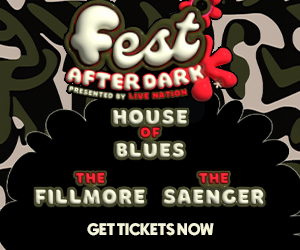 |
Roughly a century after its inception, traditional New Orleans jazz is many things to different people, ranging from a Parnassus of formal majesty to a ponderous street corner cliché. In settings like the Palm Court and Fritzel’s, the canon is delivered like a sacrament by musicians who understand its innate power and received with reverence by an audience of knowledgeable enthusiasts. On Bourbon Street and at the Convention Center, the same music is treated as inoffensive party fare that won’t offend right wing businessmen looking for “Old South values.” Boston Legal recently nailed this syndrome when William Shatner’s Denny Crane character viewed a New Orleans case as a chance to get on stage with the band at the Famous Door and play kazoo trombone.
That’s no kazoo Rick Trolsen’s playing on his tribute to traditional jazz, Sunrise on Bourbon Street. Trolsen, one of the most gifted trombonists in a city known for them, is part of a small coterie of players who treat tradition jazz as a medium to be actively explored for its contemporary possibilities. His outstanding work in Bonerama places Trolsen squarely in the moment, but like his compatriots on this album, he clearly enjoys an inquisitive stroll down this music’s archival arbors. Trolsen can tailgate like the great Kid Ory on his 1922 romp “Ory’s Creole Trombone.” He can also be blunt-edged, as in his visceral take on the 1930 hit “Exactly Like You”; jauntily amusing, as in his mute work on Hoagy Carmichael’s happy-go-lucky 1931 number “The Riverboat Shuffle”; or elegantly mellifluous, as on the Jelly Roll Morton 1923 masterpiece, “The Pearls.” Trolsen’s sidemen on this date are equally adventurous, from Tom Saunders’ bass saxophone solo on “Milenberg Joys” to Herman LeBeaux’s nifty press roll solo on “The Original Dixieland One Step.” Steve Pistorius provides crafty piano accompaniment as he coaxes octogenarian forms into new clothing. Special guest Tom McDermott, whose piano playing goes even further in its deconstruction of traditional jazz, pushes Trolsen’s envelope so far on “Panama Rag” that this version sounds positively contemporary. Another guest, bassist James Singleton, turns Irving Berlin’s 1929 hit “Puttin’ on the Ritz” into a dramatic showcase that features two driving bass solos and a climactic growl of a trombone chorus from Trolsen.
The most striking element of this record is the title track, Trolsen’s low-down description of the state of mind that greets the end of an all-nighter in the French Quarter. This is a tune that could fit anyone’s expectations of traditional New Orleans jazz, and its dark, slightly dyspeptic mood evokes a sensibility not far removed from Cat Power, not to mention Morning 40 Federation. With McDermott playing wild minor key fills against the beat and Matt Perrine adding sick tuba accompaniment, Trolsen’s ultimate tribute to his hometown’s traditional sound is to add another useful piece to its liturgy.




